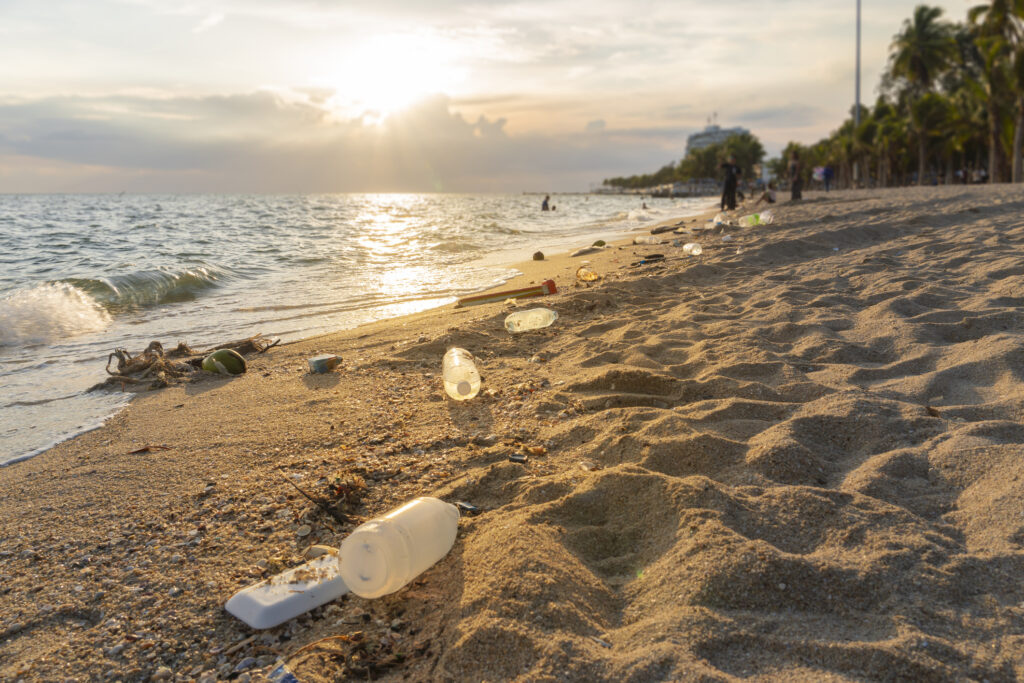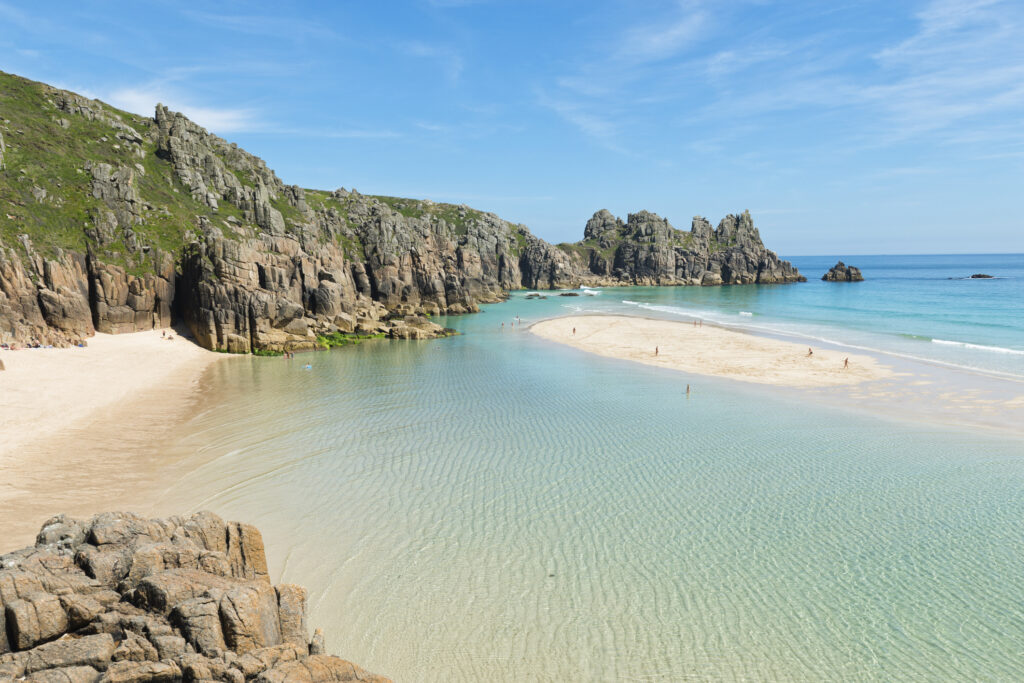Visiting your local beach is a great way to spend the day, but it’s so important to make sure you leave the area as you found it – free from rubbish! Our coastlines are at risk of suffering greatly from pollution, with an astonishing 8 million tonnes of plastic entering the sea every year.
So many of our beaches are simply stunning, but it’s crucial that you dispose of any rubbish or unwanted items responsibly, in order to reduce the impact of plastic pollution and unsightly bits of litter.
What is plastic pollution?
Plastic pollution is probably one of the world’s biggest issues right now, with the huge production of disposable plastic items happening faster that we can get rid of them. Half of all plastic ever manufactured has been made in the last 20 years alone, with production expected to double in the next 25 years or so.

While plastic plays an incredibly important role in our lives now, the use of single-use plastics in particular is detrimental to the environment. These discarded plastic items end up in our world’s oceans, with some plastics taking hundreds of years to break down. This can have a huge impact on marine life, from birds and turtles to fish and aquatic mammals like dolphins and whales. Plastic in the ocean can cause issues like entanglement and starvation.
What’s more, microplastics are becoming a problem too. These incredibly small pieces have been found everywhere in the world, from the top of Mount Everest to the deepest trenches of the ocean. Microplastics have been found in the likes of fish and crustaceans, and even us humans too.
What is a beach clean?
With that in mind, taking part in a beach clean can make a huge difference in reducing the amount of rubbish and plastic that ends up in our waters. A beach clean is a volunteering opportunity to clean up the coastline, keeping the beaches and oceans safe from harmful waste.
There are organised beach cleans up and down the country, as well as the Great British Beach Clean taking place in September every year. You can take part in organised beach cleans by getting in touch with the likes of the Marine Conservation Society, National Trust or Surfers Against Sewage.
As well as organised cleans, you can also choose to set up your own. Everyone can take part in a beach clean, including children, so long as you are safe and wear the right clothing.

How to recycle at the beach
If you do visit your local beach and want to make sure you’re acting responsibly when it comes to looking after the area, here’s a few things you could consider:
- Look out for bins and save your rubbish until you can find one to dispose of it properly
- Take reusable bottles and bags, so that you can reduce single-use plastic across the beach
- Avoid food with wrappers, especially wrappers that might easily fly away in the coastal breeze, as it could end up in the ocean
- Don’t smoke on the beach, as cigarette butts are not biodegradable and could harm wildlife
- Make sure you take your inflatables home with you, even if they have popped and are no longer of use
The importance of taking care of your local beach
Making small changes and being more aware of the materials you’re using, as well as your habits, can make a huge difference to the flourishing wildlife and health of our oceans. By looking after your local beach and making the effort, you can contribute to the conservation of our world’s animals. This can include:
- Protecting marine animals, especially from being entangled in plastic or mistaking it for food
- Preserving natural environments, and making sure any wildlife along the beach and waters can live a natural life
- Removing toxins from the ocean, by ensuring less plastic and other rubbish ends up in the water
Simple ways to help the environment at home
When at home, there are a number of ways you can help the environment, even if they seem small. Recycling more effectively can make a big difference, and it’s as simple as separating out your rubbish and putting it in the right bins.
Reusable items can also help, as it can contribute to less production of new materials and resources, which are finite. This is the same as trying to reduce your energy and water usage.
Finally, you might want to try walking, cycling or using public transport where you can instead of the car. This can help to reduce the number of carbon emissions in the environment.
Find out more here!
Want to get involved in taking care of your local beach? Our downloadable Beach Clean Guide is here, giving you all the insights and tips you need when it comes to looking after your local coastline.
Learn more about Bristol Aquarium’s conservation efforts today, or book your tickets to come and see our wonderful aquatic animals for yourself!
